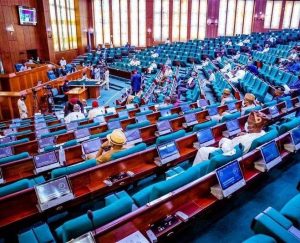
House of Representatives
The proposed Tax Reform Bills in Nigeria, designed to reshape the country’s tax framework, have hit a significant roadblock as lawmakers in the House of Representatives suspended their debate indefinitely. This development follows mounting pressure from northern governors and legislators, who argue the bills are detrimental to their region’s economic interests.
The four bills – Nigeria Revenue Service (Establishment) Bill 2024, Joint Revenue Board of Nigeria (Establishment) Bill 2024, Nigeria Tax Administration Bill 2024, and Nigeria Tax Bill 2024—were introduced after recommendations by the Presidential Committee on Fiscal and Tax Reforms led by Taiwo Oyedele. They aim to create a unified tax framework and promote efficiency in revenue generation. However, stakeholders have raised concerns about rushed deliberations and perceived regional inequities.
Opposition from the North
The suspension came after 73 northern lawmakers and the Northern Governors Forum intensified opposition, particularly over the Value Added Tax-sharing template. Governor Babagana Zulum of Borno State criticized the urgency surrounding the bills, likening it unfavorably to the Petroleum Industry Act, which underwent two decades of consultation.
During a closed-door session of the House, northern lawmakers reportedly expressed dissatisfaction, citing insufficient consultation with their constituents. A representative from the North-West remarked, “The speed with which they want these bills considered and passed is suspicious… Our governors are not convinced, and neither are we.”
APC Leadership in Disarray
Compounding the situation is internal discord within the ruling All Progressives Congress (APC). An aborted caucus dinner, intended to unify party members on legislative priorities, reflected the widening cracks. Party insiders revealed that concerns about the bills’ implications and discontent over committee appointments have fueled apathy among southern lawmakers, with many feeling sidelined by the APC leadership.
Southern legislators, particularly from the South-West, criticized the lack of inclusivity in decision-making. One lawmaker remarked, “Let the Lagos cabal defend the bills. We have no reason to stand behind those who treat us like outsiders.”
Calls for Broader Consultation
The indefinite suspension of the debate was formally communicated by the Clerk of the House, Dr. Yahaya Danzaria. His memo cited “the need for broader consultations with all relevant stakeholders” as the reason for the postponement. This aligns with earlier calls from the National Economic Council for the Federal Government to halt proceedings and engage in more inclusive discussions—a recommendation the Presidency had previously declined.
Despite the controversy, sources suggest that the Presidency remains committed to advancing the bills. Reports indicate that some lawmakers, such as Abdulmumin Jibrin of Kano State, have been lobbying colleagues to support the legislation.
What’s Next?
The path forward remains unclear. While the APC leadership has refrained from overt intervention, party insiders insist the legislative process should remain autonomous. Critics argue this hands-off approach may further fracture the party and weaken its legislative agenda.
As consultations continue, the Tax Reform Bills remain a litmus test for Nigeria’s legislative-executive relationship, regional unity, and the viability of the government’s broader economic reform agenda.

